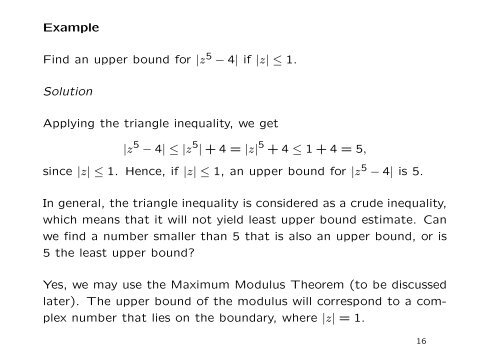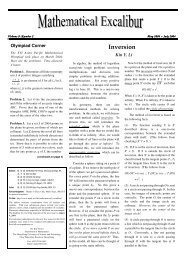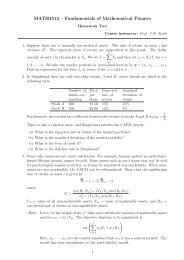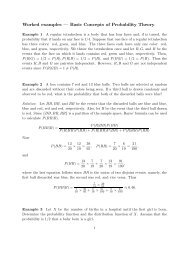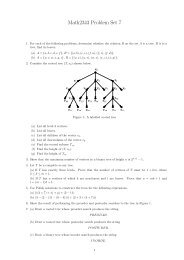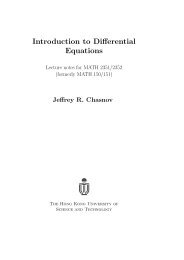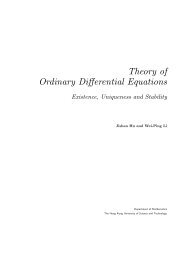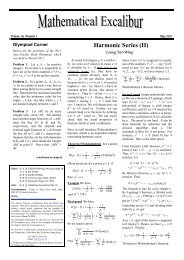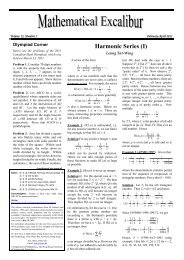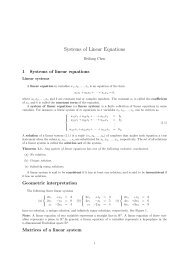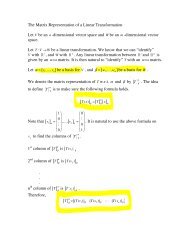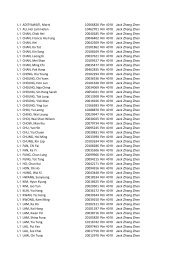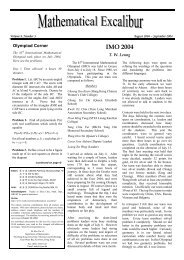1. Complex numbers A complex number z is defined as an ordered ...
1. Complex numbers A complex number z is defined as an ordered ...
1. Complex numbers A complex number z is defined as an ordered ...
You also want an ePaper? Increase the reach of your titles
YUMPU automatically turns print PDFs into web optimized ePapers that Google loves.
Example<br />
Find <strong>an</strong> upper bound for |z 5 − 4| if |z| ≤ <strong>1.</strong><br />
Solution<br />
Applying the tri<strong>an</strong>gle inequality, we get<br />
|z 5 − 4| ≤ |z 5 | + 4 = |z| 5 + 4 ≤ 1 + 4 = 5,<br />
since |z| ≤ <strong>1.</strong> Hence, if |z| ≤ 1, <strong>an</strong> upper bound for |z 5 − 4| <strong>is</strong> 5.<br />
In general, the tri<strong>an</strong>gle inequality <strong>is</strong> considered <strong>as</strong> a crude inequality,<br />
which me<strong>an</strong>s that it will not yield le<strong>as</strong>t upper bound estimate. C<strong>an</strong><br />
we find a <strong>number</strong> smaller th<strong>an</strong> 5 that <strong>is</strong> also <strong>an</strong> upper bound, or <strong>is</strong><br />
5 the le<strong>as</strong>t upper bound?<br />
Yes, we may use the Maximum Modulus Theorem (to be d<strong>is</strong>cussed<br />
later). The upper bound of the modulus will correspond to a <strong>complex</strong><br />
<strong>number</strong> that lies on the boundary, where |z| = <strong>1.</strong><br />
16


